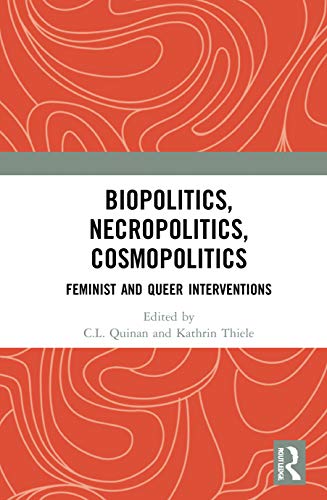

Most ebook files are in PDF format, so you can easily read them using various software such as Foxit Reader or directly on the Google Chrome browser.
Some ebook files are released by publishers in other formats such as .awz, .mobi, .epub, .fb2, etc. You may need to install specific software to read these formats on mobile/PC, such as Calibre.
Please read the tutorial at this link: https://ebookbell.com/faq
We offer FREE conversion to the popular formats you request; however, this may take some time. Therefore, right after payment, please email us, and we will try to provide the service as quickly as possible.
For some exceptional file formats or broken links (if any), please refrain from opening any disputes. Instead, email us first, and we will try to assist within a maximum of 6 hours.
EbookBell Team

4.8
24 reviewsThe concepts of biopolitics and necropolitics have increasingly gained scholarly attention, particularly in light of today’s urgent and troubling issues that mark some lives as more – or less – worthy than others, including the migration crisis, rise of populism on a global scale, homonationalist practices, and state-sanctioned targeting of gender, sexual, racial, and ethnic ‘others’.
This book aims to nuance this conversation by emphasising feminist and queer investments and interventions and by adding the analytical lens of cosmopolitics to ongoing debates around life/living and death/dying in the current political climate. In this way, we move forward toward envisioning feminist and queer futures that rethink categories such as ‘human’ and ‘subjectivity’ based on classical modern premises.
Informed by feminist/queer studies, postcolonial theory, cultural analysis, and critical posthumanism, Biopolitics, Necropolitics, Cosmopolitics engages with longstanding questions of biopolitics and necropolitics in an era of neoliberalism and late capitalism, but does so by urging for a more inclusive (and less violent) cosmopolitical framework.
Taking account of these global dynamics that are shaped by asymmetrical power relations, this fruitful posthuman(ist) and post-/decolonial approach allows for visions of transformation of the matrix of in-/exclusion into feminist/queer futures that work towards planetary social justice.
This book is a significant new contribution to feminist and queer philosophy and politics, and will be of interest to academics, researchers, and advanced students of gender studies, postcolonial studies, sociology, philosophy, politics, and law.
The chapters in this book were originally published as a special issue of The Journal of Gender Studies.